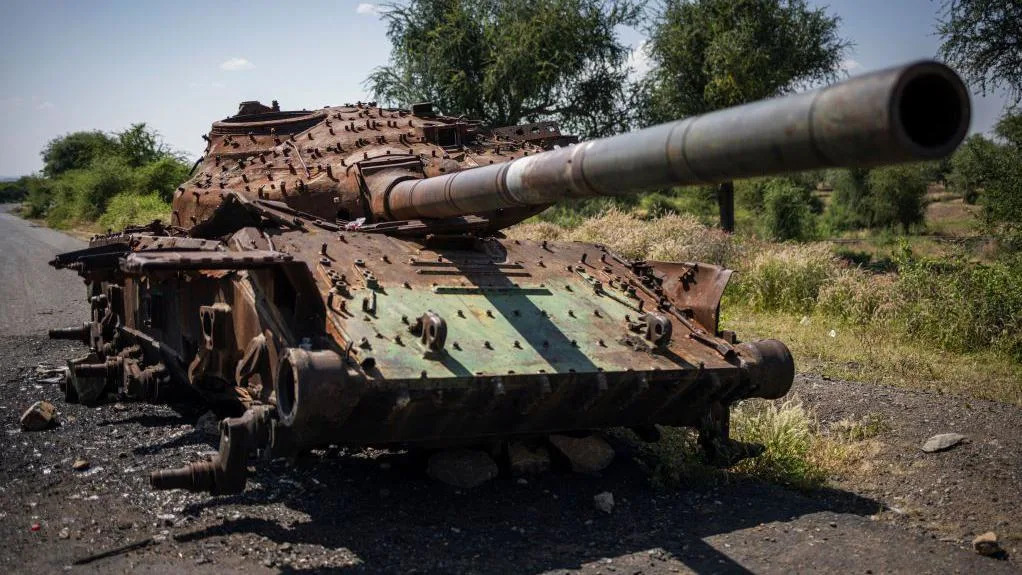Concerns are mounting over the potential for armed conflict between Ethiopia and Eritrea as hostile rhetoric intensifies in recent weeks. The landlocked nation of Ethiopia has ramped up calls for access to the Red Sea through Eritrea, igniting a fierce war of words that harks back to historical grievances.
Ethiopian Prime Minister Abiy Ahmed has asserted that access to the sea is an “existential matter” for Ethiopia, a claim that Eritrea has dismissed. Relations between the two countries have been fraught since Eritrea gained independence from Ethiopia in 1993, following a protracted struggle. A border war that erupted in 1998 resulted in the deaths of over 100,000 people and has left deep scars on both nations.
Abiy and Ethiopian military leaders have made aggressive statements regarding Eritrea’s southern port of Assab, located approximately 60 kilometers from the border. On September 1, Abiy stated that Ethiopia’s “mistake” in losing access to the Red Sea would be “corrected tomorrow.” Retired General Bacha Debele, Ethiopia’s ambassador to Kenya, echoed this sentiment, declaring that Assab was “Ethiopia’s wealth” that would be reclaimed “by force.”
The Ethiopian military has also ramped up its rhetoric. On October 25, army chief Field Marshal Birhanu Jula questioned how the interests of Eritrea’s two million people could outweigh those of Ethiopia’s 130 million. He stated, “We will strengthen our defence forces, speed up our development and secure a sea outlet.” This aggressive stance has been mirrored by other military officials, including Major General Teshome Gemechu, who described ownership of Assab port as a “survival interest worth paying any price for.”
In response to these threats, Eritrea has maintained a cautious but firm stance. Information Minister Yemane Gebremeskel dismissed Ethiopia’s claims as part of a “dangerous” and “toxic agenda.” On September 16, Eritrea’s information ministry warned that attempts to legitimise what it termed “flagrant aggression” would have serious repercussions for Ethiopia and its neighbours. In a rare military response, Eritrea’s army cautioned on November 13 that Ethiopian leaders should avoid actions that could lead to a “quagmire.”
Despite the sharp exchanges, there have been no significant military movements reported along the border. However, Ethiopia’s state television has recently broadcast numerous graduation ceremonies for military cadets, showcasing the country’s military readiness. Lieutenant General Hachalu Sheleme stated that the army was in a “reliable position,” with “tens of thousands of youths” joining its ranks. Ethiopia’s President Taye Atske Selassie has also promoted senior military officials, asserting that military preparedness is “elaborate.”
While Ethiopia displays its military capabilities, Eritrean responses remain more subdued. Eritrea continues to enforce a system of mandatory national service, training thousands of young men and women annually. Reports indicate that the Eritrean government has restricted troop movements, urging soldiers to remain in their designated positions.
Media narratives in both countries reflect the escalating tensions. In Ethiopia, state media has amplified the government’s claims regarding the “unjust” loss of access to the Red Sea. News bulletins frequently feature commentary on the need to reclaim Assab, with footage showing demonstrations and soldiers proclaiming slogans such as “Assab is ours.”
Conversely, Eritrean state media has characterized Ethiopia’s rhetoric as an attempt to “deceive the world” regarding historical issues. Editorials have accused the Ethiopian government of inciting conflict by revisiting settled matters. Interestingly, some foreign-based Eritrean media outlets have begun urging unity against Ethiopia’s threats, reflecting a shift in the political landscape.
The roots of this tension can be traced back over a century. Eritrea was governed by Italian colonisers until its administration shifted to the British military after World War II. It later became a federated part of Ethiopia until Emperor Haile Selassie I fully incorporated it in 1962, leading to a lengthy civil war. Eritrea’s eventual independence in 1993 was followed by a period of improved relations that soured over border disputes, culminating in the devastating war of 1998.
Although peace was reestablished in 2000, the agreement was never fully implemented, and tensions persisted until a rapprochement in 2018 when Abiy and Eritrean President Isaias Afwerki signed a declaration of peace, earning Abiy the Nobel Peace Prize. Yet, recent events signal a new chapter of hostility, raising fears of potential conflict in a region already grappling with instability.
As both nations navigate this fraught landscape, the international community watches closely, with the hope that diplomacy will prevail over aggression.
